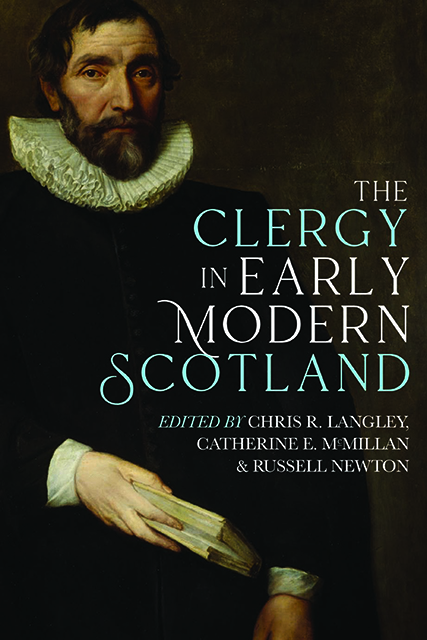1 - Exhortations and Expectations: Preaching about the Ideal Minister in Post-Reformation Scotland
Published online by Cambridge University Press: 14 January 2023
Summary
Ministers in post-Reformation Scotland were not shy about exalting their estate from the pulpit. Take, for example, the words of Zachary Boyd, Glasgow preacher turned university administrator, in 1629: ‘let no man wonder that Satan raiseth slanders upon preachers. This maketh that Dragon often to stretch out his taile that hereby hee may sweepe downe the lights of the World, which shew unto us the way of salvation’. Here Boyd depicted preachers as not only the leading lights of their communities, but also as preparing for apocalyptic battle, ready to trample the foes, demonic and otherwise, of Christendom. Elsewhere, however, Boyd was more modest in his description of the ministry, instructing his hearers to ‘Say no, O the preacher! O the wonderful man! … but say rather, God is mighty in the man. Look over the man and gaze upon God’. It was not the eloquent minister who ought to be revered, but God, operating through one of his servants. Boyd’s characterisations of the clergy make manifest the central tension for ministers who regularly preached about preaching: how to balance respect for (and obedience to) the clergy with tempered expectations of these individuals who were, despite their illustrious calling, still fallen and flawed men.
The role of ministers in early modern Scottish communities was vast and varied. They baptised children, buried the dead, enforced moral discipline, doled out poor relief, arbitrated local disputes, and represented their communities in national assemblies. Above all, they imparted to their congregations crucial knowledge of God and scripture. Within the walls of the kirk, the essential relationship between a minister and his congregation was forged through the process of delivering and hearing sermons. For ministers, whose position in a particular parish relied at least partially on the assent of their parishioners, preaching was fundamentally about authority – to understand and convey the word of God, to lead their flock in good times and bad, to educate and edify the godly. Indeed, in a society where the laity had a significant amount of power in choosing and maintaining their minister, the high stakes for members of the clergy did not go unremarked by ministers themselves or their parishioners.
- Type
- Chapter
- Information
- The Clergy in Early Modern Scotland , pp. 15 - 31Publisher: Boydell & BrewerPrint publication year: 2021



